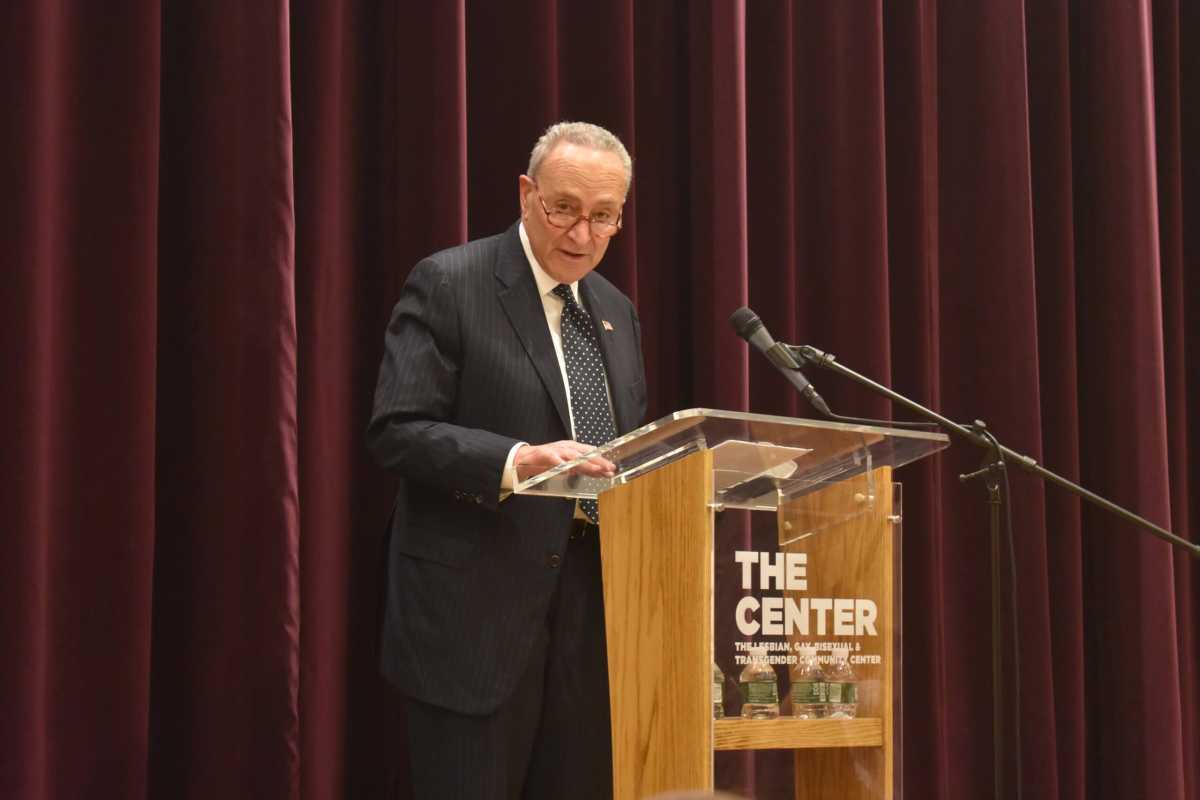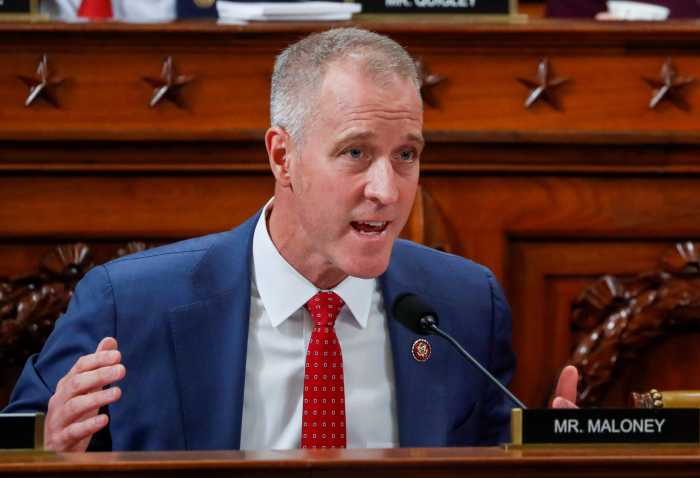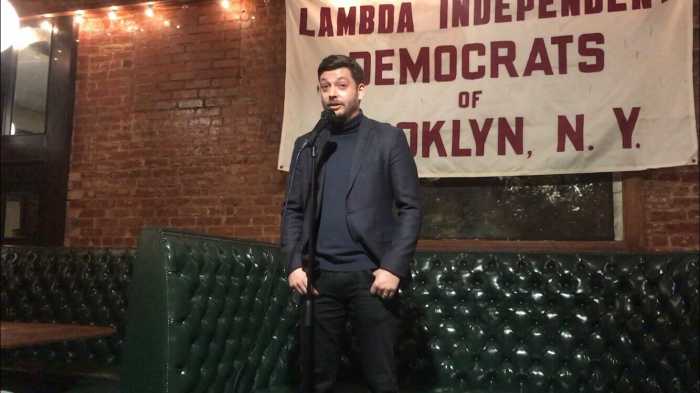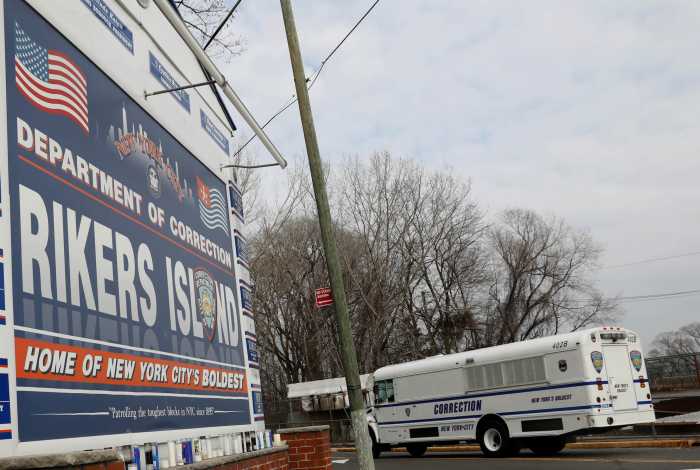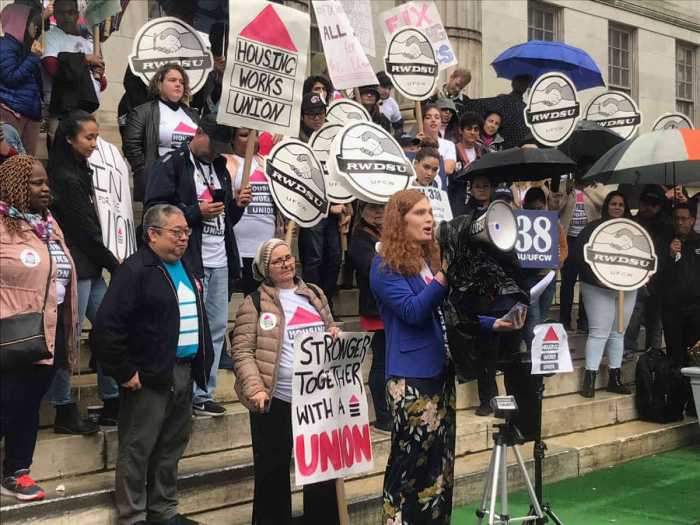Senate Majority Leader Chuck Schumer of New York delivered an impassioned speech at the LGBT Community Center in Manhattan on January 28 as he sought to reignite momentum behind the Equality Act with a pledge to pass a federal LGBTQ non-discrimination bill.
“I am committing to passing federal legislation to update the Civil Rights Act of 1964 to include protections for all LGBTQ+ Americans,” said Schumer, whose vocal vow drew cheers from across the room. The event was led by Freedom for All Americans, which is a bipartisan campaign to win federal LGBTQ non-discrimination protections, along with the statewide advocacy group New Pride Agenda and the Bronx LGBTQ organization Destination Tomorrow.
The Equality Act would amend Title VII of the 1964 Civil Rights Act to add comprehensive non-discrimination protections for LGBTQ people across areas including housing, public education, public accommodations, federal funding, credit, and the jury system. The measure would build on the Supreme Court’s landmark ruling in Bostock v. Clayton County.
In his speech, Schumer issued a public plea to his colleagues from both parties to rally around a bill that he said should not be political. He demonstrated the urgent need to advance federal non-discrimination legislation by pointing to what he described as a “despicable” flood of anti-trans bills circulating dozens of states.
In order to pass the Equality Act, Democrats would need to secure enough votes to overcome the filibuster’s 60-vote threshold — but the bill has lacked sufficient bipartisan Senate support. Schumer is nonetheless striking a hopeful tone.
“Just like in the House, the Equality Act will get Republican support,” Schumer said.
Republican Senator Susan Collins of Maine, once a co-sponsor the Equality Act, notably pulled her support of the bill last year when she told the Washington Blade she did not get the concessions she wanted.
There is also the challenge of securing unanimous support among Democrats in a split Senate. Senator Joe Manchin of West Virginia has been the lone Democratic holdout on the Equality Act in the upper chamber — and in 2019 he explained his opposition to it by saying the bill lacked “sufficient guidance to the local officials who will be responsible for implementing it, particularly with respect to students transitioning between genders in public schools.”
When asked by Gay City News about where things stand with Manchin and the Equality Act, Schumer would only say he’s “talking to all the senators right now.”
Last February — the same month the Equality Act passed the House with three GOP votes — Republicans proposed an alternative, watered-down bill called the Fairness for All Act, which came with religious carve-outs intended to satisfy conservative lawmakers. It is not clear whether Schumer and his Senate colleagues are considering alternative avenues should the Equality Act continue to hit roadblocks, but the broad phrasing of his commitment to pass “federal legislation” seemed to leave open the possibility of a compromise.
“I wouldn’t do it without talking to all of the groups,” Schumer told Gay City News when asked if he would consider a compromise.
Elisa Crespo, the executive director of the New Pride Agenda, acknowledged the reality of concessions in a divided political climate.
“It’s going to take a very skillful, strategic kind of compromise without compromising on our values, and that’s difficult,” Crespo said during her remarks. “We’re going to have to reach across the aisle and work with folks who fundamentally disagree with us on almost everything. But we can walk and chew gum at the same time.”
Many of the speakers at the event connected their own stories to the need for the Equality Act — including Schumer himself, who brought up his out daughter, Alison, when he said the bill “is personal for me.”
Sean Coleman, the executive director of Destination Tomorrow, invoked his family’s legacy — his grandmother was the daughter of a sharecropper — as he reminded folks not to take basic rights for granted.
“The very fabric of our society is under attack,” Coleman said, citing the targeting of abortion rights, trans rights, and voting rights. “The importance of this time cannot be lost on any of us.”
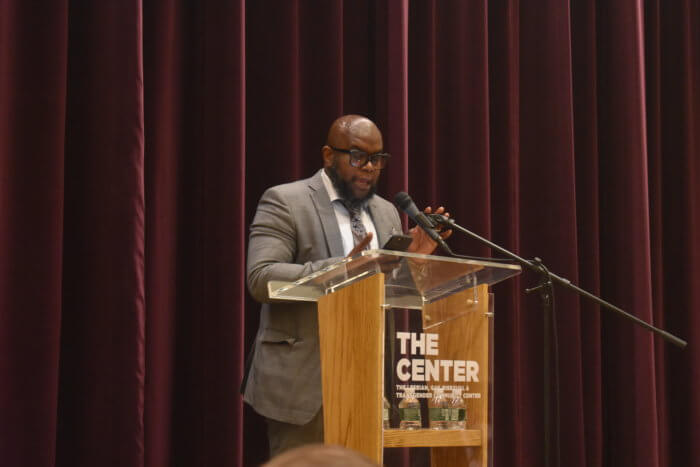
Shéár Avory, a community organizer for the New Pride Agenda, recalled moving to New York City in 2016 as a homeless 18-year-old and enduring “institutionalized oppression.” Stressing that the most marginalized individuals in the community bear the brunt of discrimination, Avory described federal non-discrimination legislation as “our generation’s Civil Rights Act.”
“It is important that non-discrimination protections are explicitly inclusive of LGBTQ people so that our existence isn’t erased and so that our struggle is documented,” Avory said.
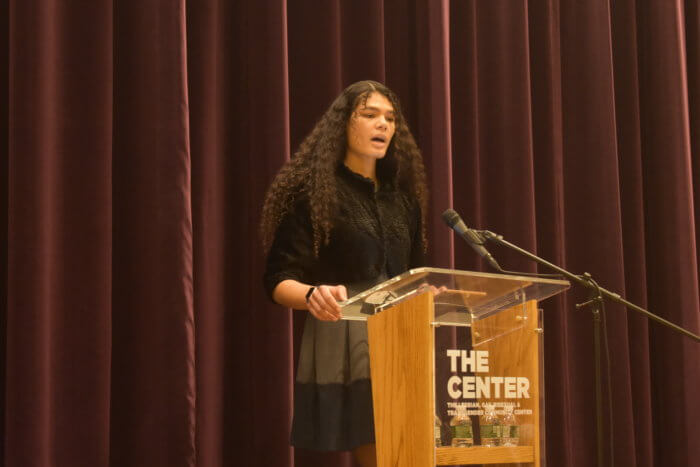
Other elected officials in attendance included New York Congressmember Jerrold Nadler, who stepped up to the podium and declared that there is an “incredible chance” to sign the Equality Act into law.
“LGBTQ Americans cannot wait any longer for clear and comprehensive equality under the law,” Nadler said. “Last year marked an alarming milestone. It was the deadliest year on record for transgender and gender non-conforming individuals. This cannot continue. We must not let it continue.”
Representative Tom Suozzi of Long Island was also on hand, along with several out LGBTQ elected officials, including City Councilmember Erik Bottcher, State Senator Brad Hoylman, and Assemblymember Deborah Glick.

